| Listing 1 - 10 of 29 | << page >> |
Sort by
|
Book
ISBN: 2256904687 9782256904684 Year: 1999 Volume: 274 Publisher: Paris: Lettres modernes,
Abstract | Keywords | Export | Availability | Bookmark
 Loading...
Loading...Choose an application
- Reference Manager
- EndNote
- RefWorks (Direct export to RefWorks)
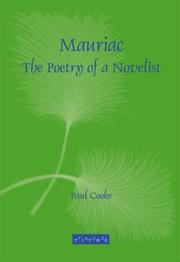
ISBN: 9042008482 9789042008489 9789004489868 900448986X Year: 2003 Volume: 240 Publisher: Leiden;Boston BRILL
Abstract | Keywords | Export | Availability | Bookmark
 Loading...
Loading...Choose an application
- Reference Manager
- EndNote
- RefWorks (Direct export to RefWorks)
Although internationally renowned as a novelist, journalist, and essayist, Nobel Prize-winning author François Mauriac (1885-1970) never established a reputation as a poet. Yet it was Maurice Barrès’s favourable review of his first collection of verse, Les Mains jointes, that launched Mauriac’s career in 1910. He went on to publish three further collections of poems and insisted to the end of his life that, despite critical neglect of his verse, he remained first and foremost a poet. This book offers the first ever in-depth exploration of the whole of Mauriac’s verse output. After a chapter tracing his general conception of poetry and comparing his ideas to those of other poets and theorists, each of Mauriac’s verse collections is analysed in turn, as are many of his poems that were published exclusively in literary journals. A final chapter explores the significant relationship between Mauriac’s verse and his novels, revealing the multiple connections between these two series of texts. This volume will appeal to those with an interest in twentieth-century French poetry and, more generally, to those interested in the relationship between verse and prose.
Mauriac, François --- Criticism and interpretation --- Poetic works --- Authors, French --- French authors --- Mauriac, François (1885-1970) --- Critique et interprétation --- Oeuvres --- Poésie
Book
ISSN: 21939659 ISBN: 3110268477 9783110268478 9783110268102 3110268108 Year: 2013 Volume: v. 3 Publisher: Berlin ; Boston : De Gruyter,
Abstract | Keywords | Export | Availability | Bookmark
 Loading...
Loading...Choose an application
- Reference Manager
- EndNote
- RefWorks (Direct export to RefWorks)
This volume offers the first book-length academic investigation of Florian Henckel von Donnersmarck's Oscar-winning film The Lives of Others (2006). The aim of this edited collection is twofold. On the one hand, it offers new insight into one of the most successful German films of the past two decades, placing The Lives of Others within its wider historical, political, aesthetic and industrial context. On the other, it offers this group of scholars, which includes many of the leading international figures in the field, opportunity to make a series of interventions on the state of contemporary German film and German film studies.
Culture in motion pictures. --- Motion pictures --- Cinema --- Feature films --- Films --- Movies --- Moving-pictures --- Audio-visual materials --- Mass media --- Performing arts --- History --- History and criticism --- Leben der Anderen (Motion picture) --- Lives of others (Motion picture) --- Leben der Anderen (Motion picture). --- "The Lives of Others". --- Contemporary German Film.
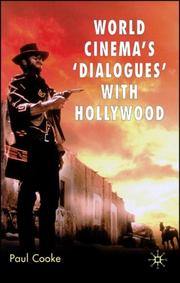
ISBN: 9781403998958 Year: 2007 Publisher: Basingstoke Palgrave Macmillan
Abstract | Keywords | Export | Availability | Bookmark
 Loading...
Loading...Choose an application
- Reference Manager
- EndNote
- RefWorks (Direct export to RefWorks)
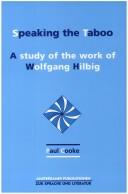
ISBN: 9789004485617 9789042015425 Year: 2000 Publisher: Leiden;Boston BRILL
Abstract | Keywords | Export | Availability | Bookmark
 Loading...
Loading...Choose an application
- Reference Manager
- EndNote
- RefWorks (Direct export to RefWorks)
Wolfgang Hilbig is a writer who is widely acknowledged as one of the most important to have emerged from the former GDR. In this study, the first in English, Paul Cooke explores the interplay of aesthetic and social 'taboos', as defined by the official discourse of the GDR, in a cross-section of Hilbig's critical writing, poetry and prose. The protagonists in Hilbig's texts suffer from a profound crisis of identity due to the disparity between the state's official presentation of life in the East and their own experience. Cooke argues that through their exploration of the 'taboo', i.e. that which is excluded from the state's official discourse, Hilbig's characters attempt to break through the banal rhetoric of the ruling elite in order to realise an authentic sense of self.
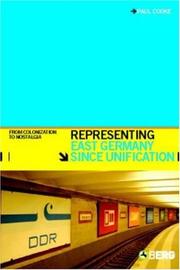
ISBN: 9781350214811 9781845201883 9781845201890 Year: 2005 Publisher: London Bloomsbury Publishing
Abstract | Keywords | Export | Availability | Bookmark
 Loading...
Loading...Choose an application
- Reference Manager
- EndNote
- RefWorks (Direct export to RefWorks)

ISBN: 904201542X 9004485619 Year: 2000 Volume: 141 Publisher: Amsterdam Rodopi
Abstract | Keywords | Export | Availability | Bookmark
 Loading...
Loading...Choose an application
- Reference Manager
- EndNote
- RefWorks (Direct export to RefWorks)
Book
ISBN: 1137522798 1137522801 9781137522795 Year: 2016 Publisher: London : Palgrave Macmillan UK : Imprint: Palgrave Macmillan,
Abstract | Keywords | Export | Availability | Bookmark
 Loading...
Loading...Choose an application
- Reference Manager
- EndNote
- RefWorks (Direct export to RefWorks)
This book provides a unique examination of the way Europe’s past is represented on contemporary screens and what this says about contemporary cultural attitudes to history. How do historical dramas come to TV and cinema screens across Europe? How is this shaped by the policies and practices of cultural institutions, from media funding boards to tourist agencies and heritage sites? Who watches these productions and how are they consumed in cinemas, on TV and online?, are just some of the questions this volume seeks to answer. From The Lives of Others to Game of Thrones, historical dramas are a particularly visible part of mainstream European film production, often generating major national debates on the role of the past in contemporary national identity construction.
Culture --- Communication. --- Motion pictures --- History. --- Cultural and Media Studies. --- Media Studies. --- History, general. --- European Cinema. --- Study and teaching. --- European influences. --- Cinéma --- Histoire --- Histoire. --- Motion pictures-European influen. --- European Cinema and TV. --- Annals --- Auxiliary sciences of history --- Communication, Primitive --- Mass communication --- Sociology --- Motion pictures—European influences. --- Europe --- Europe. --- In motion pictures. --- Council of Europe countries --- Eastern Hemisphere --- Eurasia
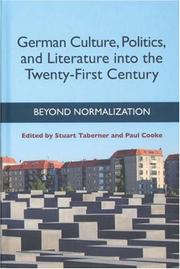
ISBN: 1571133380 157113512X 9786611949372 1571136789 128194937X Year: 2006 Publisher: Suffolk : Boydell & Brewer,
Abstract | Keywords | Export | Availability | Bookmark
 Loading...
Loading...Choose an application
- Reference Manager
- EndNote
- RefWorks (Direct export to RefWorks)
This volume features sixteen thought-provoking essays by renowned international experts on German society, culture, and politics that, together, provide a comprehensive study of Germany's postunification process of 'normalization.' Essays ranging across a variety of disciplines including politics, foreign policy, economics, literature, architecture, and film examine how since 1990 the often contested concept of normalization has become crucial to Germany's self-understanding. Despite the apparent emergence of a 'new' Germany, the essays demonstrate that normalization is still in question, and that perennial concerns - notably the Nazi past and the legacy of the GDR - remain central to political and cultural discourses and affect the country's efforts to deal with the new challenges of globalization and the instability and polarization it brings. This is the first major study in English or German of the impact of the normalization debate across the range of cultural, political, economic, intellectual, and historical discourses. CONTRIBUTORS: STEPHEN BROCKMANN, JEREMY LEAMAN, SEBASTIAN HARNISCH AND KERRY LONGHURST, LOTHAR PROBST, SIMON WARD, ANNA SAUNDERS, ANNETTE SEIDEL ARPACI, CHRIS HOMEWOOD, ANDREW PLOWMAN, HELMUT SCHMITZ, KAROLINE VON OPPEN, WILLIAM COLLINS DONAHUE, KATHRIN SCHöDEL, STUART TABERNER, PAUL COOKE. Stuart Taberner is Professor of Contemporary German Literature, Culture, and Society and Paul Cooke is Senior Lecturer in German Studies, both at the University of Leeds.
German literature --- Politics and literature --- History and criticism --- Germany --- Weimar Republic --- Germanii︠a︡ --- Германия --- BRD --- FRN --- Jirmānīya --- جرمانيا --- Nimechchyna --- Gjermani --- Federalʹna Respublika Nimechchyny --- Veĭmarskai︠a︡ Respublika --- Ashkenaz --- Germanyah --- Bundesrepublik Deutschland --- Federal Republic of Germany --- Deutschland --- Repoblika Federalin'i Alemana --- República Federal de Alemania --- Alemania --- República de Alemania --- Bu̇gd Naĭramdakh German Uls --- Kholboony Bu̇gd Naĭramdakh German Uls --- KhBNGU --- ХБНГУ --- German Uls --- Germania --- Republika Federal Alemmana --- Deutsches Reich --- Grossdeutsches Reich --- Weimarer Republik --- Vācijā --- Germany (Territory under Allied occupation, 1945-1955) --- Germany (Territory under Allied occupation, 1945-1955 : British Zone) --- Germany (Territory under Allied occupation, 1945-1955 : French Zone) --- Germany (Territory under Allied occupation, 1945-1955 : Russian Zone) --- Germany (Territory under Allied occupation, 1945-1955 : U.S. Zone) --- Germany (East) --- Germany (West) --- Holy Roman Empire --- Civilization --- Intellectual life --- ドイツ --- Doitsu --- ドイツ連邦共和国 --- Doitsu Renpō Kyōwakoku --- History and criticism. --- ドイツ レンポウ キョウワコク --- Deguo --- 德国 --- Gėrman --- Герман Улс --- Contemporary. --- Cultural. --- Discourses. --- Economic. --- Germany. --- Historical. --- Intellectual. --- Legacy. --- Nazi past. --- Normalization. --- Political.
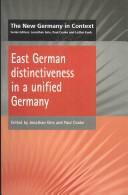
ISBN: 1282452304 9786612452307 0567536068 9780567536068 1902459172 9781902459172 9781282452305 6612452307 Year: 2002 Publisher: Birmingham : University of Birmingham Press,
Abstract | Keywords | Export | Availability | Bookmark
 Loading...
Loading...Choose an application
- Reference Manager
- EndNote
- RefWorks (Direct export to RefWorks)
Introduction * The Nature of Research * The 'Nuts and Bolts' of Research * Getting Started in Research * The Building Blocks of Research * Introducing the Key Research Paradigms * The Types and Uses of Theory in Research * Introducing Research Methods * Academic Standards, Plagiarism and Ethics in Research * Conclusion: Summary of Key Points * Appendix 1: Stages of Research * Appendix 2: Glossary of Terms * Bibliography.
National characteristics, East German. --- Political culture --- Civil society --- Social contract --- East German national characteristics --- Germany (East) --- Germany --- Intellectual life. --- Politics and government. --- Politics and government
| Listing 1 - 10 of 29 | << page >> |
Sort by
|

 Search
Search Feedback
Feedback About UniCat
About UniCat  Help
Help News
News